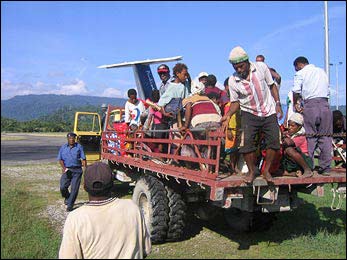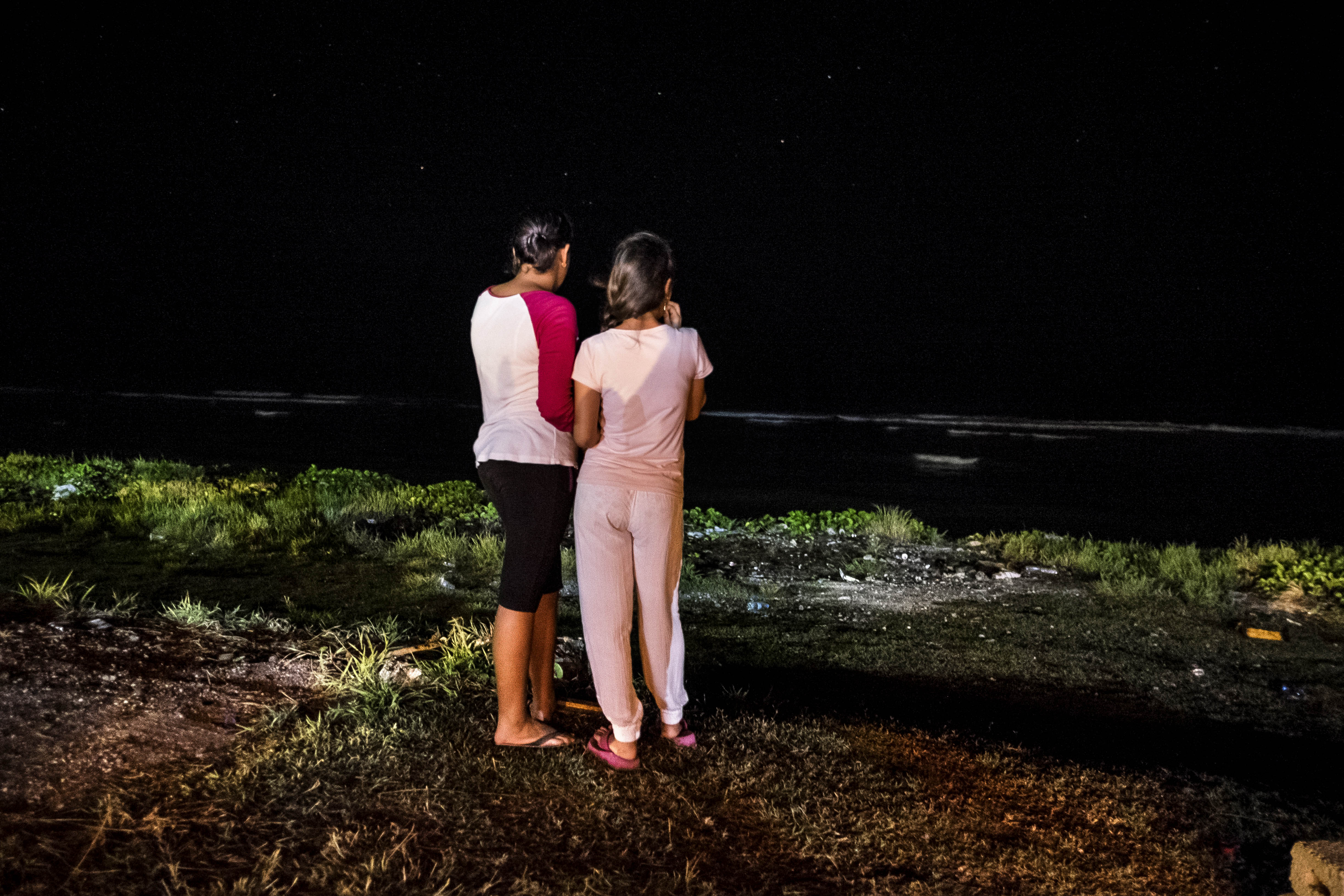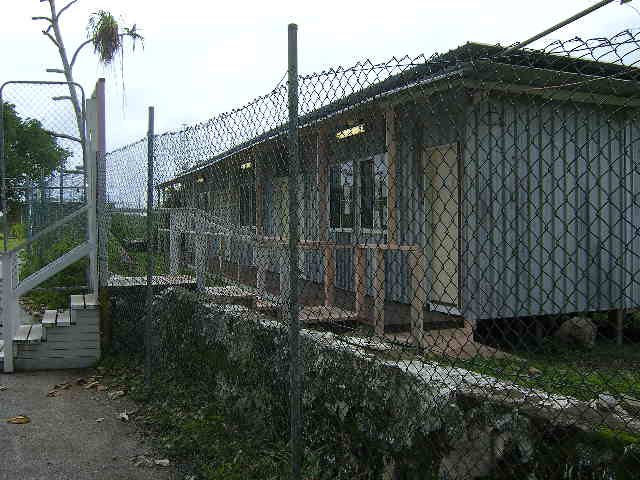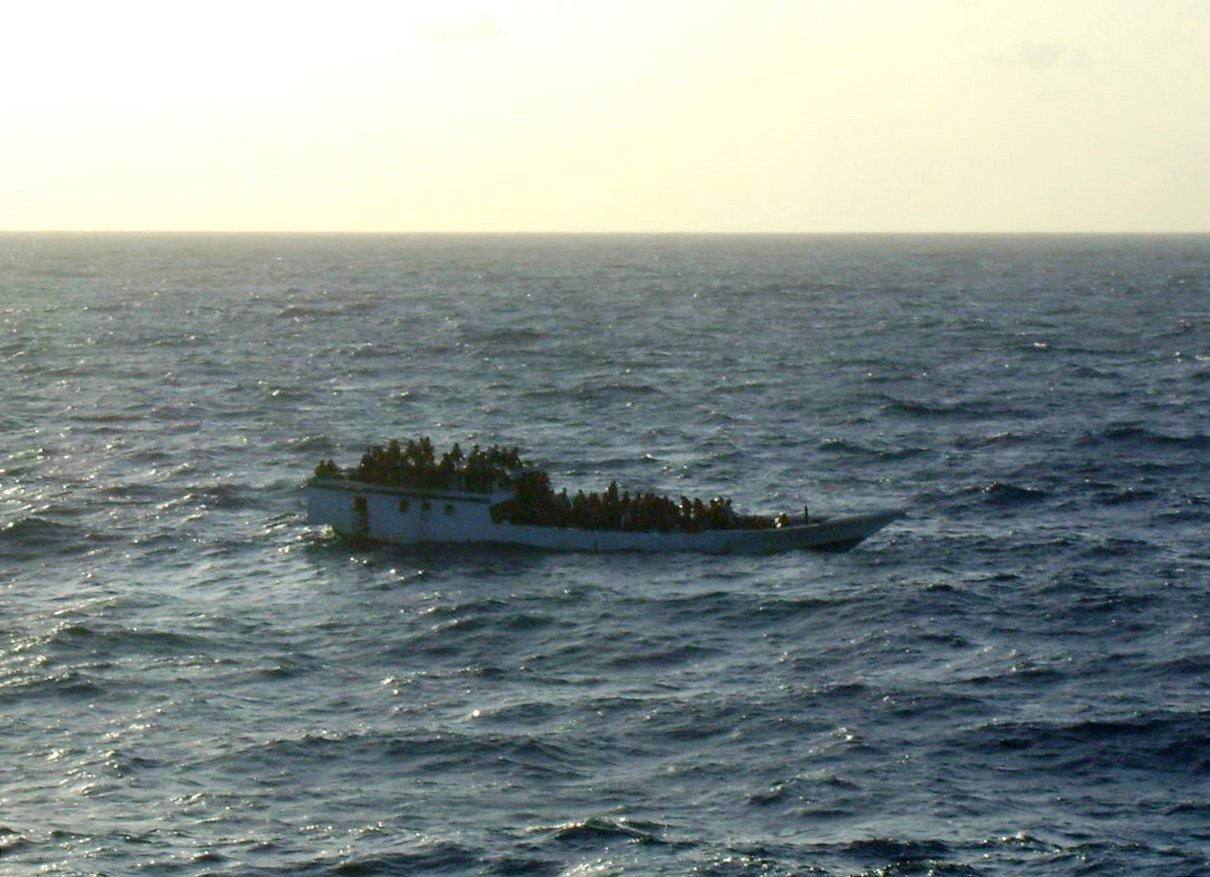In PNG, refugees from Indonesia's Papua province start complex journey to new home
In PNG, refugees from Indonesia's Papua province start complex journey to new home
EAST AWIN, Papua New Guinea, Oct 1 (UNHCR) - More land, better social services and the right to free movement - that is what 185 refugees from Indonesia's Papua province, formerly Irian Jaya, can look forward to as the UN refugee agency starts a complex process to relocate them within neighbouring Papua New Guinea (PNG).
On Thursday, the UN refugee agency completed the first phase of the relocation
from PNG's Vanimo town (Sandaun province) to East Awin town (Western province). The refugee group included 52 women, 54 men and 77 children. The youngest, only two months old, travelled in her mother's bilum shoulder bag.
Due to the rough terrain of PNG and the absence of established road networks, the refugees were moved to the remote mining town of Kiunga in five groups by a PNG Airlines plane chartered by UNHCR. They will spend a short time in a transfer shelter in Kiunga before being moved in groups of 40 by boat to Rampsite, about one hour upstream on the Fly River. From there, the small groups will travel the 46 km to East Awin by tractor.
These refugees were among 460 people who had arrived in the border town of Vanimo from Indonesia's Papua province in December 2000. They were mainly from Wamena and Jayapura and were one of several groups of pro-independence refugees from the Indonesian province since the late 1960s. More than half of the original 460 refugees have since moved back across the border.
In Vanimo, the Catholic Diocese provided humanitarian assistance in the form of food and health care, but there was not enough land to enable the remaining 185 to become self-sustaining.
Preparations for the transfer began in earnest in May, following a breakthrough in negotiations with the traditional land owners regarding the allocation of land for the group to build houses and establish gardens. In PNG, the land tenure system is complex and land for cultivation is always in short supply.
UNHCR's PNG Representative, Johann Siffointe, said the complex move was a significant achievement. He praised the PNG government for its commitment to achieving a negotiated outcome with the Vanimo group who were initially reluctant to move to the remote area of East Awin. "Their commitment to the negotiation process ensured the relocation remained a voluntary exercise," he said.
"The move is an important first step in the integration of the refugees into Papua New Guinea," Siffointe said. "In East Awin, land has been allocated for the settlement of refugees so they can grow vegetables and raise chickens and pigs, there are established schools and health clinics and after six months the refugees can apply to the PNG government for Permissive Residency."
He explained, "Permissive Residency (PR) gives people the right to move anywhere in PNG and is a firmer legal footing on which to rebuild their lives."
Leaving the tarmac on the first of the flights out of Vanimo, group leader Mr. Konstan, on behalf of his community, thanked the government of Sandaun province and the national government for hosting their stay in Vanimo. He also expressed appreciation for the assistance provided by the Catholic Diocese of Vanimo.
Mr. Konstan appealed to the Department of Border Affairs to provide security in East Awin and to grant them Permissive Residency. He vowed to return to Vanimo with the community if Permissive Residency was not granted down the track.
Saying goodbye to the refugees at Vanimo's Transmitter camp, Pastor Petrus of the PNG Bible Church said, "Only some of them are members of my congregation, but all of them are my friends. I am sad to see them go but I believe it was the right decision to go as there is more space in East Awin, even though it is very far."
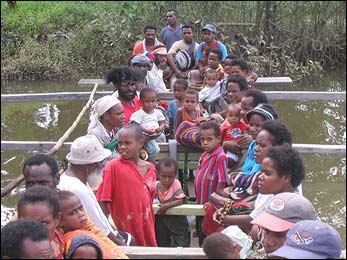
In East Awin, UNHCR has prepared food, tarpaulins, nails, saws, spades, bush knives, lamps, jerry cans, and mosquito nets for the refugees. They will receive rice, tinned fish, salt and cooking oil for one year while they establish their gardens and build their houses. In the meantime, children can resume their schooling when the fourth term begins next month after the holidays.
In 1987, the PNG government designated East Awin as the place for the relocation of refugees and asylum seekers and has leased 6,000 hectares from traditional landowners. There are 2,500 refugees from Indonesia's Papua province already settled there, including 1,200 children who were born in East Awin. Most of the refugees already settled in East Awin have already received Permissive Residency permits, renewed every three years. Health and education facilities are run by the Catholic Diocese of Daru/Kiunga.
